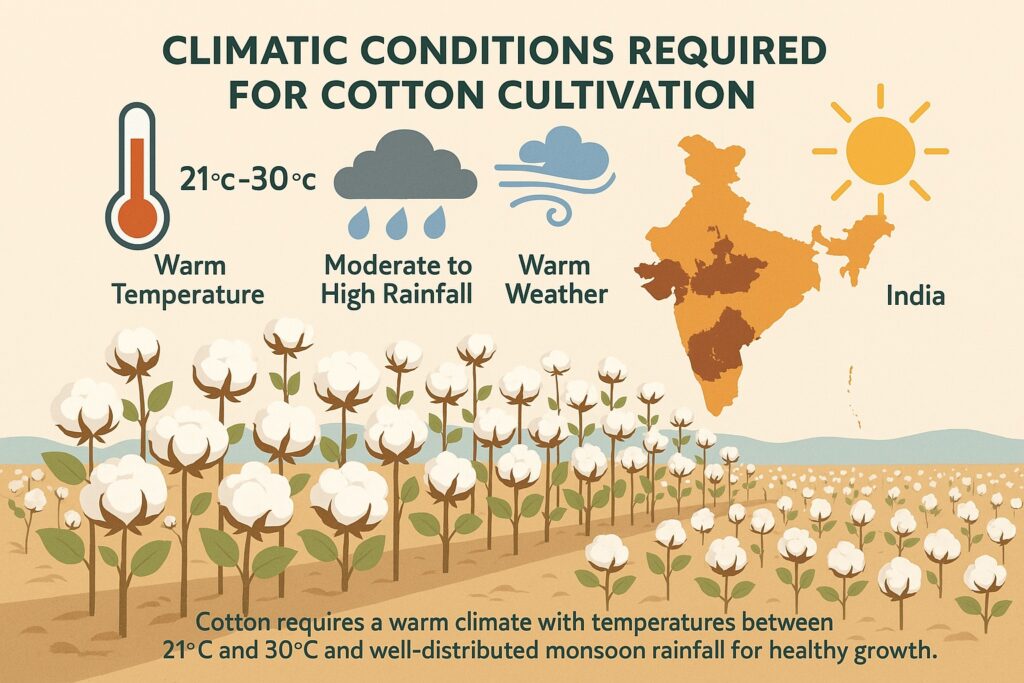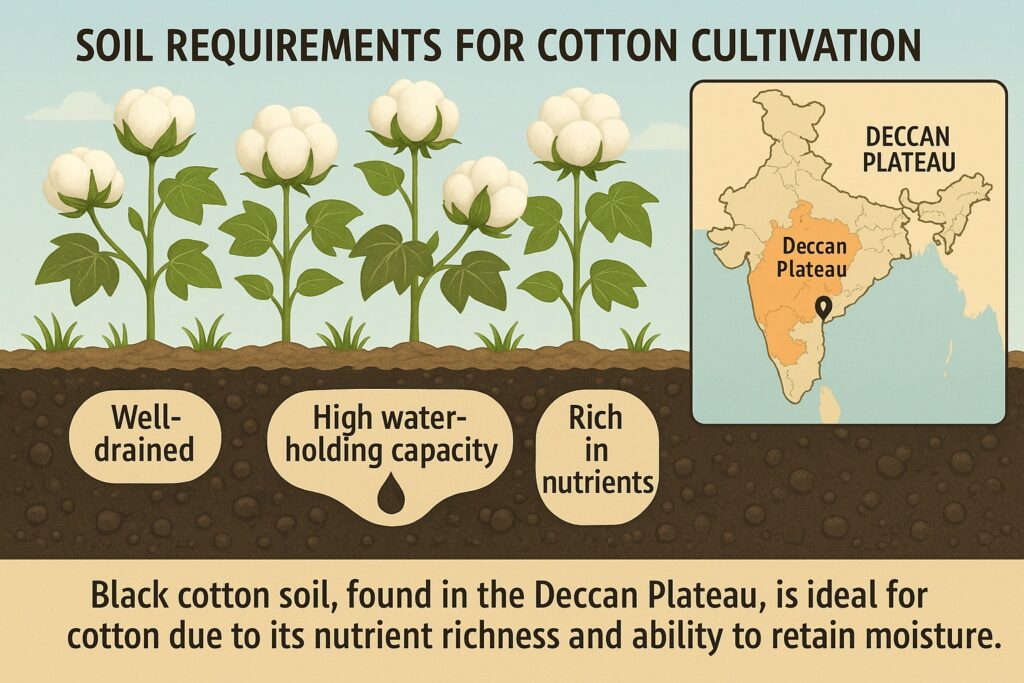The cotton industry is one of the largest and most important sectors in India. The industry is influenced by a number of locational factors that play a key role in determining the success and growth of cotton production and trade. It plays a major role in employment generation, industrial production, and foreign exchange earnings. The location of this industry is influenced by several geographical, economic, and infrastructural factors. In this article, we will explore some of the key locational factors of cotton industry in India.

Table of Contents
Climate
Cotton is a crop that requires specific climatic conditions to grow successfully. The ideal temperature for cotton cultivation is between 21 to 30 degrees Celsius. The rainfall pattern also plays a crucial role in cotton cultivation. Regions with moderate to high rainfall during the monsoon season are ideal for cotton cultivation. In India, the cotton-growing regions are primarily located in the states of Maharashtra, Gujarat, Rajasthan, and Telangana, which have suitable climatic conditions.
-
Cotton is the primary raw material for this industry.
-
Cotton grows well in black soil regions of Maharashtra, Gujarat, Madhya Pradesh, and parts of Telangana and Karnataka.
-
Proximity to cotton farms reduces transportation costs and ensures a steady supply.
Example: Gujarat and Maharashtra are leading producers of both cotton and cotton textiles.
Soil
The quality of the soil is another crucial factor that determines the success of cotton cultivation. Cotton requires well-drained soil with a high water-holding capacity. In India, the black cotton soil of the Deccan plateau is considered to be the most suitable for cotton cultivation. This type of soil is rich in nutrients and has a high water-holding capacity, which is essential for the growth of cotton.

Availability of water
Cotton requires a significant amount of water to grow. The availability of water, therefore, plays a critical role in cotton cultivation. Regions with access to a regular supply of water are ideal for cotton cultivation. In India, the cotton-growing regions are primarily located in the states that have rivers and dams, such as Maharashtra, Andhra Pradesh, and Punjab.
Proximity to markets
The proximity to markets is a critical factor in the cotton industry, as cotton is a highly perishable commodity. Regions with easy access to markets are ideal for cotton cultivation, as they ensure that the cotton can be transported quickly and efficiently to the markets. In India, the cotton-growing regions are primarily located near major cities and towns, such as Mumbai, Ahmedabad, and Hyderabad.
Transportation
The transportation infrastructure also plays a key role in the cotton industry. Regions with well-developed transportation networks, such as railways, roads, and ports, are ideal for cotton cultivation. In India, the cotton-growing regions are primarily located near major transportation hubs, such as Mumbai, Kolkata, and Chennai.
In conclusion, the cotton industry in India is influenced by a number of locational factors, including climate, soil, availability of water, proximity to markets, and transportation infrastructure. Understanding these factors is essential for the success and growth of cotton production and trade in India.
Read: Geography Notes